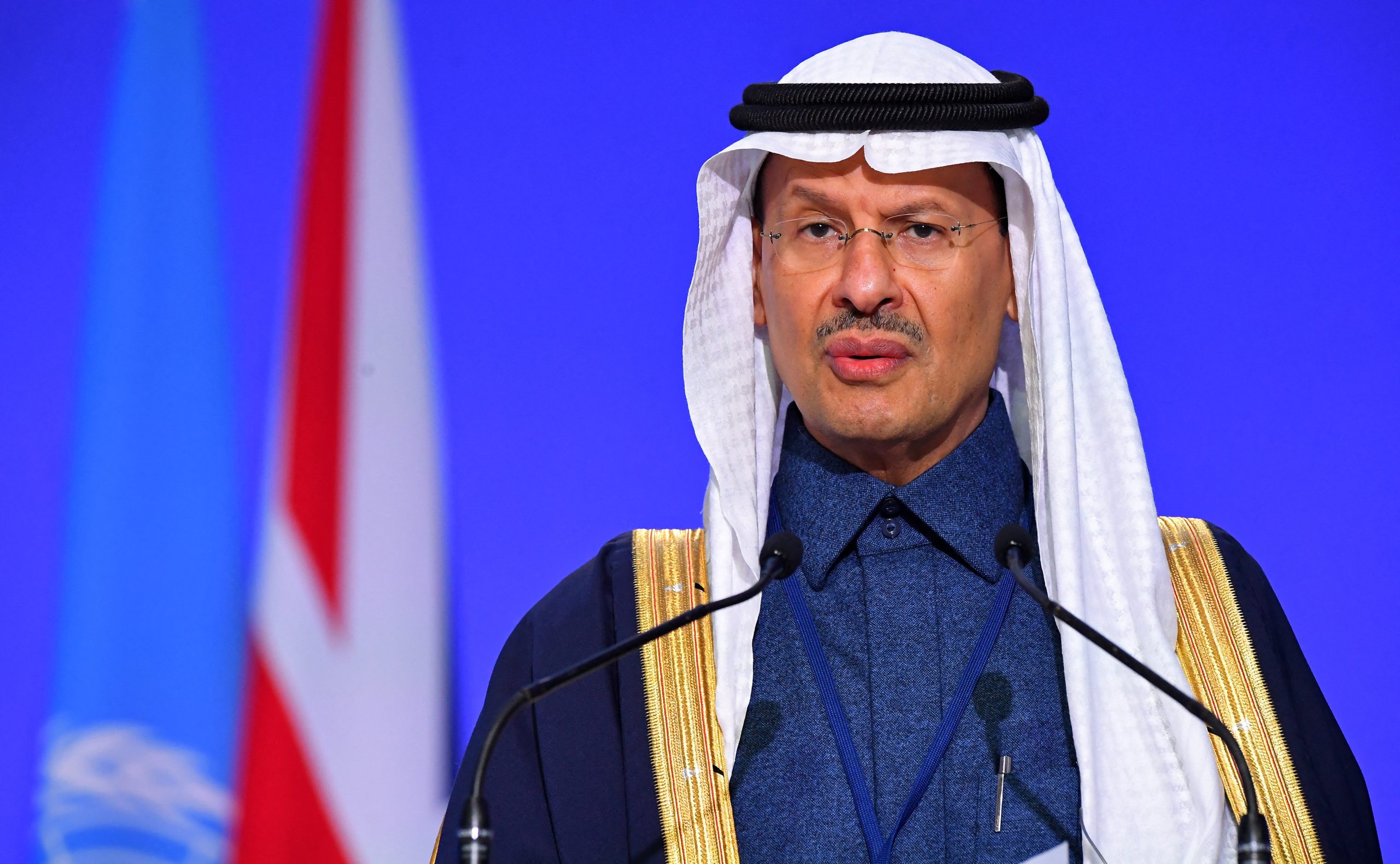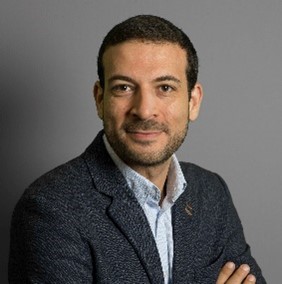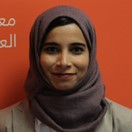
- 29 Mar 2022
Climate Commitments: Less Reason for the Arab Region to Cop Out?


(This event is organised by MEI Diffusion of Ideas-Gulf research cluster.)
The last Conference of the Parties (COP 26), held under the United Nations Framework Convention on Climate Change (UNFCCC), finalised the “rulebook” for implementing the 2015 Paris Agreement. Its tagline, “from ambition to action,” will be examined through the lens of the next two COP meetings – COP27 and COP28 – hosted by Egypt and the United Arab Emirates, respectively. Given the varying impacts of climate change across regions, the Paris Agreement recognised that there is no one-size-fits-all approach. Both the UAE and Egypt have been working with the United States to roll out further initiatives: The US-UAE venture aims to make agriculture resilient to climate change, while Egypt’s joint press release with the US stressed the need for “Implementation…Plus” which includes carrying through on existing commitments. These projects will give further importance to the Arab COPs globally, especially in the lead-up to COP28 under the Emirati presidency, where the first round of global stocktake is due to take place.
Can COP 27 and COP 28 serve as outlets for the Arab region to highlight their unique climate challenges? To what extent will the Arab countries’ position differ? Will there be an increase in regional climate cooperation? In particular, will the two COPs create Arab-African tensions? How much further along the road to action will Arab countries be pushed?
The Middle East Institute, in collaboration with the Arab Gulf States Institute in Washington (AGSIW), will host a panel to tackle these and other questions.
This public talk will be conducted online via Zoom on Tuesday, 29 March 2022, from 8.00 pm to 9.30 pm (SGT) / 8.00 am to 9.30 am (Washington DC time). All are welcome to participate. This event is free, however, registration is compulsory. Successful registrants will receive a confirmation email with the Zoom details closer to the date of the event.
Image caption: Saudi Energy Minister Abdulaziz bin Salman speaks in a session during the COP26 UN Climate Change Conference in Glasgow on November 10, 2021. – Photo: ANDY BUCHANAN / AFP
Listen to the full event here:
Watch the full event here:
Read the Summary of Event Proceedings:
By Kiera Chua
Intern, Middle East Institute, National University of Singapore
Following the Glasgow COP26 in 2021 which cemented the Paris agreement, climate policies have been a focal point of global discussion. A spotlight has specifically been shone on the Middle East and North Africa (MENA) region, as its countries include the largest oil and natural gas exporters in the world (UAE, Saudi Arabia and Kuwait) who play an important role in addressing climate change. This talk’s focus was to discuss the different attitudes and climate policies of countries in the Middle East in the lead up to COP27 and COP28, which will be hosted by Egypt and the UAE respectively.
Professor Karim Elgendy first contextualised the Middle East’s position regarding climate action. Prior to COP26, the region has had a reputation for being obstructionist toward climate policy, prioritising the protection of oil exports at the expense of renewable energy-centric policies. Therefore, it was unexpected that COP26 saw Saudi Arabia and other influential oil-exporting countries try to steer the conversation. Professor Elgendy dubbed this as the Middle East ‘jumping on the climate bandwagon’ – having recognised that climate policy is a persisting issue, these powerful countries, whose revenue and security are largely reliant on oil, now want a hand in shaping policy.
He asserted that climate action can’t be the same everywhere which is why these states, including many OPEC members, have suggested alternative policies tailored to the Middle East. For example, Saudi Arabia’s Circular Carbon Economy prioritises reducing carbon emissions and reusing and recycling existing carbon. Crucially, it allows for the continued use of fossil fuels as a necessary ‘transition fuel’, protecting regional interests. This is in contrast to existing policies that espouse developing renewable energy sources and reducing reliance on non-renewables like oil. Professor Elgendy also observed that following COP26, MENA climate week (which took place concurrently with this panel), illustrated a continued trend of the Middle East displaying itself to be increasing climate action by bringing together regional stakeholders and raising private and public sector awareness.
Professor Elgendy broke down these countries into two groups with vastly different approaches to climate action:
- High ambition and high carbon footprint: Typically, oil and gas exporters and known to use climate policies not just as a diplomatic tool. E.g. the UAE and Saudi Arabia
- Low ambition, low carbon: Mostly developing countries whose policies are conditional on financial support and prioritise technological adaptation and the mitigation of carbon emissions. E.g. Egypt
He expects the groups to become even more differentiated in the upcoming COPs. Egypt, the host of COP27, is an extreme example of the second group. Professor Elgendy predicts that COP27 will focus on ensuring countries follow through with existing decarbonisation promises made in the Glasgow Climate Pact. He thinks it unlikely that Egypt will push for further mitigation, given that the country did not commit to any COP26 efforts to reduce coal and methane and has not updated its Nationally Determined Contribution (NDC) to cut emissions – something it could face criticism for. Contrastingly, the UAE, the host of COP28 is a ‘perfect’ example of the first group, according to Professor Elgendy. He believes the ‘solutions and opportunities based’ COP28 will feature technology like green and blue hydrogen and cover nationally-salient issues such as desalination and agriculture. One similarity Professor Elgendy anticipates is the pushback both COPs will face for backing natural gas.
Nonetheless, he concluded that there is positive evidence of climate change being taken up in the region with collaborative events like MENA climate week and the Middle East Green Initiative. Most importantly, they have managed to capture public interest specifically among youths.
MEI Research Fellow Aisha Al-Sarihi, one of the speakers in this session, focused on the Gulf Cooperation Council (GCC)’s perspective on climate change and its role in future COPs. The GCC is a six-member political and economic union of Arab states from the MENA region.
Firstly, she explained why scientifically, the GCC represents a unique climate action case, citing the MENA region’s desert climate which warms at twice the rate as the rest of the world and unprecedented temperatures in recent years such as a high of 54 degrees Celsius in Kuwait in 2016.
Secondly, Dr Al-Sarihi explored GCC priorities for the upcoming COPs. She warned that because GCC states are wealthier than other MENA countries, they are able to significantly act against climate change but also have the ability to pose a massive obstacle should they choose to protect their main source of income: hydrocarbon resources. She elaborated that the reason GCC countries may do this is that they and other MENA countries depend on oil revenue for necessities such as food imports and water desalination. She expects the GCC and wider Middle East to prevent climate policy from being at the expense of oil money and turn to proposals like the CCE framework in order to protect the hydrocarbon industry.
Finally, Dr Al-Sarihi addressed the extent to which she views COP27 and COP28 as possible turning points on the road to tackling climate change. She stressed that even if countries follow through on their NDCs, they will still be lagging behind, with the increase in global temperature on track to reach a devastating level of 2.7 degrees Celsius by the end of the century.
However, she optimistically concluded that the subsequent COPs – specifically COP28 – will prove to be a turning point because it will mark the completion of the first global stock take. This will entail checking countries’ progress in climate adaptation, mitigation and finance since the Paris Agreement. Crucially for the Middle East, it will enable data collection, measurement, verification and hopefully increase transparency in order to get a more accurate depiction of climate action. Dr Al-Sarihi also reiterated Professor Elgend’s view that raising awareness and encouraging collaboration between the government and private and public sectors are significant successes of COP.
Highlights from the Q&A Session
How effective is the ‘ratchet mechanism’?
Ratcheting is a method of requiring countries to revise and communicate emission targets (NDCs) every five years as part of the Paris Climate Agreement. Both Prof Elgendy and Dr Al-Sarihi agreed that the main drawback with ratcheting is that it is voluntary. Prof Elgendy asserted that the fundamental flaw is that although countries have collectively agreed to a goal of holding global warming to 1.5 degrees Celsius, their individual efforts do not sum up to this goal. Furthermore, a ‘get out clause’ in the Paris Agreement allows countries to update their NDCs every ten years rather than five. Dr Al-Sarihi further criticised ratcheting, explaining that while following up on NDCs via stock takes is important, it is not enough because it cannot guarantee that effective strategies are being implemented. She also expects crises such as the war in Ukraine to increase global gas emissions as European countries try to secure energy, concluding that there is still no stable global action to address climate change.
How do we reconcile the dichotomy of technology in relation to climate change? It is essential to mitigation, yet the tech industry is also a major contributor to the climate crisis.
Prof Elgendy asserted that renewable energy is cheaper for new capacity, although it is not cheaper than the existing capacity. This means that for countries that don’t have existing fossil fuel-based infrastructure, it would be ideal to ‘leapfrog’ non-renewables and go directly for renewable sources like wind turbines and hydrogen.
How can GCC countries adopt an environmentalist approach and in which sectors will their opportunities lie?
Dr Al-Sarihi cited the electricity sector as a ‘low hanging fruit’ for GCC countries to work towards their net-zero carbon emissions goal, through enhancing energy efficiency, using renewable energy and developing carbon capture storage. She identified transport and industry as sectors that will benefit from the development of low carbon technology like hydrogen; elaborating that the GCC countries which can develop and potentially export hydrogen will benefit economically. Dr Al-Sarihi did concede most of this technology is not mature and will need gradual scaling.
How do we transition industrial economies to greener processes?
Gradually cleaning supply chains, improving efficiency and transitioning to cleaner processes were examples Prof Elgendy gave of how industrialised nations are able to make their economies greener, though he recognised that this is a tedious and difficult process. On a wider scale, he asserted that what’s more important is reframing economies to become more circular and use less of the linear model adopted since industrialisation.
About the Speakers

Associate Fellow, Chatham House
Founder & Coordinator of Carboun
Non-resident Fellow, Middle East Institute, DC
Dr Aisha Al-Sarihi
Non-resident Fellow, AGSIW
Research Fellow, Middle East Institute, National University of Singapore
[Moderator] Dr Clemens Chay
Research Fellow, Middle East Institute, National University of Singapore
Mr Karim Elgendy is an urban sustainability and climate consultant based in London and a Non-resident Fellow at the Middle East Institute. His areas of expertise include developing sustainable and resilient cities and neighbourhoods, climate policy analysis, energy transition and assessing the impact of policy, economics, urbanisation, planning, urban metabolism and circularity and urban systems on sustainability and resilience.
His current work focuses on the Middle East and North Africa region, especially around the Eastern Mediterranean and the Gulf but his two decades of experience spans Europe, North America and Sub-Saharan Africa.
Mr Elgendy is also an Associate at Dar, an Associate Fellow at Chatham House (The Royal Institute for International Affairs) and the Founder and Co-ordinator of Carboun, an advocacy initiative promoting sustainability in the cities of the Middle East and North Africa through research and communication.
In addition to being a regular public speaker, lecturer and commentator, he is regularly interviewed and cited by television, print and digital media including outlets such as The Financial Times, The New York Times, BBC, Reuters, CNN, Aljazeera, Asharq Bloomberg and Sky News Arabia. His work is also cited in academic publications.
Mr Elgendy is the recipient of the 2013 Global Green Building Entrepreneurship Award by the World Green Building Council and is a chartered member of the Royal Institute of British Architects (RIBA). He has a Master’s degree from the University of California, Berkeley and is an accredited professional under several sustainability certification systems including LEED, BREEAM, EcoDistricts and GSAS.

Dr Aisha Al-Sarihi is a Non-resident Fellow at the Arab Gulf States Institute in Washington and Research Fellow at the Middle East Institute (National University of Singapore). Her areas of research interest include political economy of environmental sustainability, energy policy, renewables and climate policies, with a focus on the Arab region. In addition to scientific publications, her research has appeared in different media outlets including Al Arabiya TV, Reuters, The Associated Press, The New Arab, Arab News, Asia Times, Earth Island Journal and Oman Daily Observer.
She was a former research associate at King Abdullah Petroleum Studies and Research Centre as well as a former visiting scholar at Georgetown University’s Center for Contemporary Arab Studies and the Arab Gulf States Institute in Washington. Dr Al-Sarihi also served as a research officer at the London School of Economics and Political Science’s Middle East Centre. She holds a PhD from the Centre for Environmental Policy at Imperial College London and a MSc and a BSc, with distinction, in environmental science from Sultan Qaboos University.
[Moderator] Dr Clemens Chay is a Research Fellow at the Middle East Institute (National University of Singapore). He heads the Diffusion of Ideas-Gulf research cluster at the institute and spearheads a public education series “Bridging the Gulf”. His research focuses on the history and politics of the Gulf states, with a particular emphasis on Kuwait, Oman and Saudi Arabia. Before joining MEI, he was the Al-Sabah fellow at Durham University where he taught and completed his PhD.
His most recent academic publications include a chapter that examines Kuwait’s parliamentary politics in The Routledge Handbook of Persian Gulf Politics (2020) and another article appearing in the Journal of Arabian Studies titled “The Dīwāniyya Tradition in Modern Kuwait: An Interlinked Space and Practice.” His commentaries also feature across different outlets, including ISPI, KFCRIS and AGSIW. Dr Chay is currently working on a book project related to Kuwait’s diwaniyya circuit.




